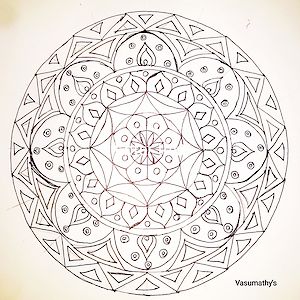In the series of my blogs about National Policy of Education 2020, I already discussed about the aspect of multilingualism to an extent. This blog is going to be the extension of the previous blog. In case you have not read my previous blog please visit this Link
India is a land of diversity in culture, traditions and of course languages too. Indian languages are among the world's most richest, scientific , beautiful and expressive languages. We have large number of ancient as well as modern literature (both prose and poetry), film, and music written in these languages. They represent our identity and wealth. For purposes of cultural enrichment as well as national integration, all children should be aware of the rich and vast array of languages of their country, and the treasures that they and their literature contain.
To achieve this every student in the country will participate in a fun project/activity on ‘The Languages of India’ in Grades 6-8. This project or activity will be to make students learn about the remarkable similarities and differences between the major Indian languages. This project will also focus upon the associations of geographical locations with the languages spoken in them. This will help them to get a sense of the nature and structure of tribal languages too. They will also learn to say few lines in every major language of India. They would also learn a bit about rich and uplifting literature in each of them. This activity would give them both a sense of the unity and the beautiful cultural heritage and diversity of India. Also this would help them in their whole lives to easily interact with people from other parts of India without any hesitation. Most important thing is this project/activity would be a joyful activity and no form of assessment would be there.
The next important debate that is happening especially in Tamil Nadu is about including sanskrit in the school education. The policy does not emphasis the compulsory inclusion of sanskrit. It just outlines the beauty of sanskrit and says that it will be offered as an option for students at all levels of school and higher education. So again it's not compulsory but an option among other languages. So it will be in the purview of students to opt for learning sanskrit or not. The policy also tries to emphasise the importance of other classical languages like Tamil, Telugu, Kannada, Malayalam, Odia, Pali, Persian and Prakrit. So, not only sanskrit, the teaching of all other classical languages and literature of India will also be widely available in schools as options (possibly as online modules).
All students in all schools, public or private may have the option of learning at least two years of a classical language of India and its associated literature,through experiential and innovative approaches including by integration of technology, in Grades 6-12, with the option to continue from middle level through secondary education and university. In addition to Indian languages and English, foreign languages, such as Korean, Chinese, Japanese, Thai, French, German, Spanish, or Russian will also be widely offered at the secondary level, for students to learn about the cultures of the world and to increase their global knowledge and mobility according to their own interests and aspirations.
The teaching of all languages will be enhanced through innovative and experiential methods like using games , apps etc to learn , and by weaving in the cultural aspects of the languages. Also the teaching-learning will be through films, theatre and storytelling, art and music, local literature, etc. Thus, the teaching of languages will also be based on experiential learning pedagogy.
Apart from other languages ,Indian Sign Language (ISL) will also be standardised across the country. National and State curriculum materials will also be developed, for use by students with hearing impairment. Local sign languages will be respected and taught as well, wherever possible and relevant.
[ A total of 72 Likes and 81 Loves for this article. Please caste your vote.!! ]
Comment What You Think






